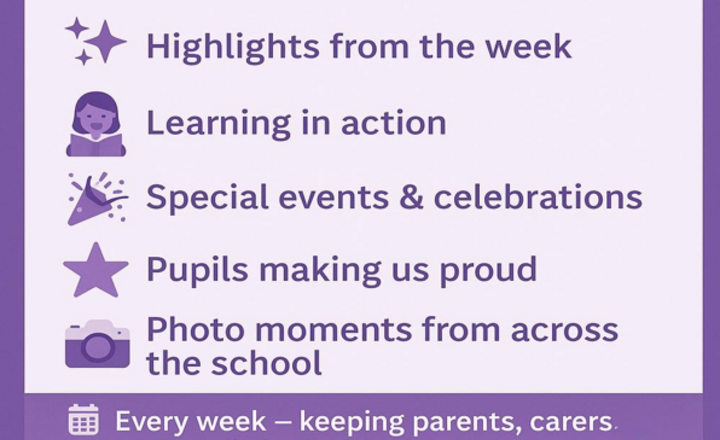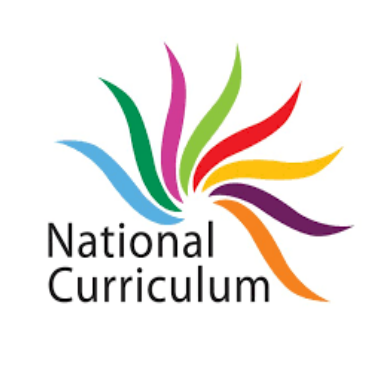English

Meet the English Team:
The English team at Chapelford Village Primary School consists of Mrs Webb-Breen, Mrs Cleary, and Mrs Gaulton. Together, we are passionate about driving success for all learners in literacy. As enthusiastic and creative writers and readers ourselves, we understand the value of developing all aspects of literacy—from reading to speaking. Having taught across the school, we have a strong understanding of progression in literacy and take great joy in planning engaging, exciting English lessons that inspire and challenge every child.
Intent
At Chapelford Village Primary School, we believe that if a child can’t read, they can’t get on in life. Literacy is the foundation for future success, helping children become confident communicators and responsible citizens. Our English curriculum equips children with the skills they need for further study, work, and life beyond school.
Our intent is to provide a rich, engaging curriculum that integrates Speaking & Listening, Reading, and Writing, helping all at children at Chapelford to:
- Communicate effectively and creatively in spoken and written language.
- Express ideas, opinions and feelings clearly, using appropriate, technical vocabulary.
- Develop a growing interest in words, their meanings and vocabulary.
- Engage with a wide range of texts for understanding and enjoyment.
- Write for a variety of purposes and audiences, producing grammatically correct and cohesive work.
- Apply grammar, punctuation, spelling, and phonics knowledge confidently in context.
- Develop imagination, creativity and critical thinking in not only literacy tasks, but in wider contexts across the curriculum.
- Build confidence as independent learners and readers.




Implementation
To achieve our aims, we have carefully designed a clear, well-sequenced and progressive curriculum that sets out exactly what children will learn in each year group. This ensures that skills and knowledge build year on year and it is ambitious for all children. At Chapelford, we prioritise revisiting and reinforcing previous learning, enabling children to build meaningful links between what they already know and the new concepts they encounter. This approach supports long-term retention of key knowledge and helps children apply it confidently, not only in English but across a range of subjects throughout the curriculum.
Key features include:
- Quality Text-Led Approach: Children study age-appropriate texts over a half term, moving from reading and analysis to planning and writing their own pieces.
- Grammar, Spelling, and Phonics in Context: Opportunities are embedded throughout lessons to practise and apply knowledge, developing confidence in writing cohesive, grammatically correct sentences for different purposes.
- Reading-Rich Environment: Staff model enthusiasm for reading and provide exposure to high-quality, stimulating texts to develop vocabulary, comprehension and imagination.
- Integration Across Curriculum: Literacy skills are reinforced across subjects to provide coherent and meaningful learning experiences.
Additional Focus:
- Early Identification and Support: Barriers to learning are identified early, with targeted interventions implemented, tracked, and evaluated regularly through both internal and external processes.
- Fostering a Love of Reading and Writing: Children are immersed in high-quality texts and a reading-rich environment to develop lifelong reading habits and a passion for writing.
In our literacy learning at Chapelford, we:
- Use subject-specific terminology accurately (e.g., grammar, punctuation, literary terms)
- Encourage exploratory learning and inquiry through reading and writing
- Consolidate new and prior knowledge to build deeper understanding
- Provide opportunities to ask questions and research ideas
- Offer meaningful writing experiences both in school and in real-world contexts
- Support children in developing a rich understanding of texts and genres
- Teach, model, and encourage the correct use of literacy vocabulary
- Routinely use high-quality resources to support literacy learning (e.g., texts, dictionaries, digital tools)
- Ensure learning is relevant to the children’s experiences while connecting to wider contexts
- Make links between previous and new learning to strengthen understanding
- Promote discussion and dialogue to reinforce literacy vocabulary
- Use mixed-ability groupings to share knowledge, ideas, and vocabulary
Impact
We measure the impact of our English curriculum through a variety of assessment strategies. Children complete independent writing tasks every 3–4 weeks, which provide them with an opportunity to draw together the knowledge and skills they have built up over the half term, as well as prior learning. These tasks allow pupils to write with a clear purpose and audience in mind, demonstrating their ability to apply grammar, punctuation, spelling, vocabulary, and structural skills in context.
Teachers regularly review children’s work to track retention, identify gaps, and adapt teaching to meet the needs of each learner. This ongoing assessment ensures that any barriers to learning are swiftly addressed through targeted support, helping every child to progress confidently. Alongside written work, we also place a strong emphasis on oracy, giving children opportunities to express their ideas clearly, articulate opinions, and participate confidently in discussions.
From the end of Year 1, termly reading and spelling assessments provide further evidence that children can independently recall and apply their learning. Progress is shared with parents through termly reports, parent meetings, and opportunities to view children’s work, ensuring families are fully informed and involved in their child’s development.
Through this approach, children become fluent readers, confident writers, articulate speakers, and enthusiastic learners, equipped with the skills to communicate effectively, think critically, and succeed both in school and beyond.
Want to know more about developing your English learning?
Here are some resources to help you deepen your reading, writing, and communication skills:
- LiveWire (Warrington Libraries) / Warrington Borough Council Libraries – Explore your local library network (e‑books, audio books, family reading events, study spaces). Good for all ages! Warrington Borough Council
- Reading Eggs – An online programme and app that makes phonics, reading and spelling practice fun and interactive for children aged 2‑13. readingeggs.co.uk+2readingeggs.co.uk
- Young Writers / writing competitions & challenges – Provides opportunities for children to write creatively, for a purpose and an audience, and to make their writing matter. Young Writer of the Year Award
- National Centre for Writing – Young People Resources – Free writing‑and‑storytelling tools for children and young people to practise writing, explore structure, character, plot and more. National Centre for Writing | NCW
.jpg)
.jpg)
.jpg)
Click on the National Curriculum image for the National Curriculum programme of study for English.
Related News

.jpeg)


.jpg)